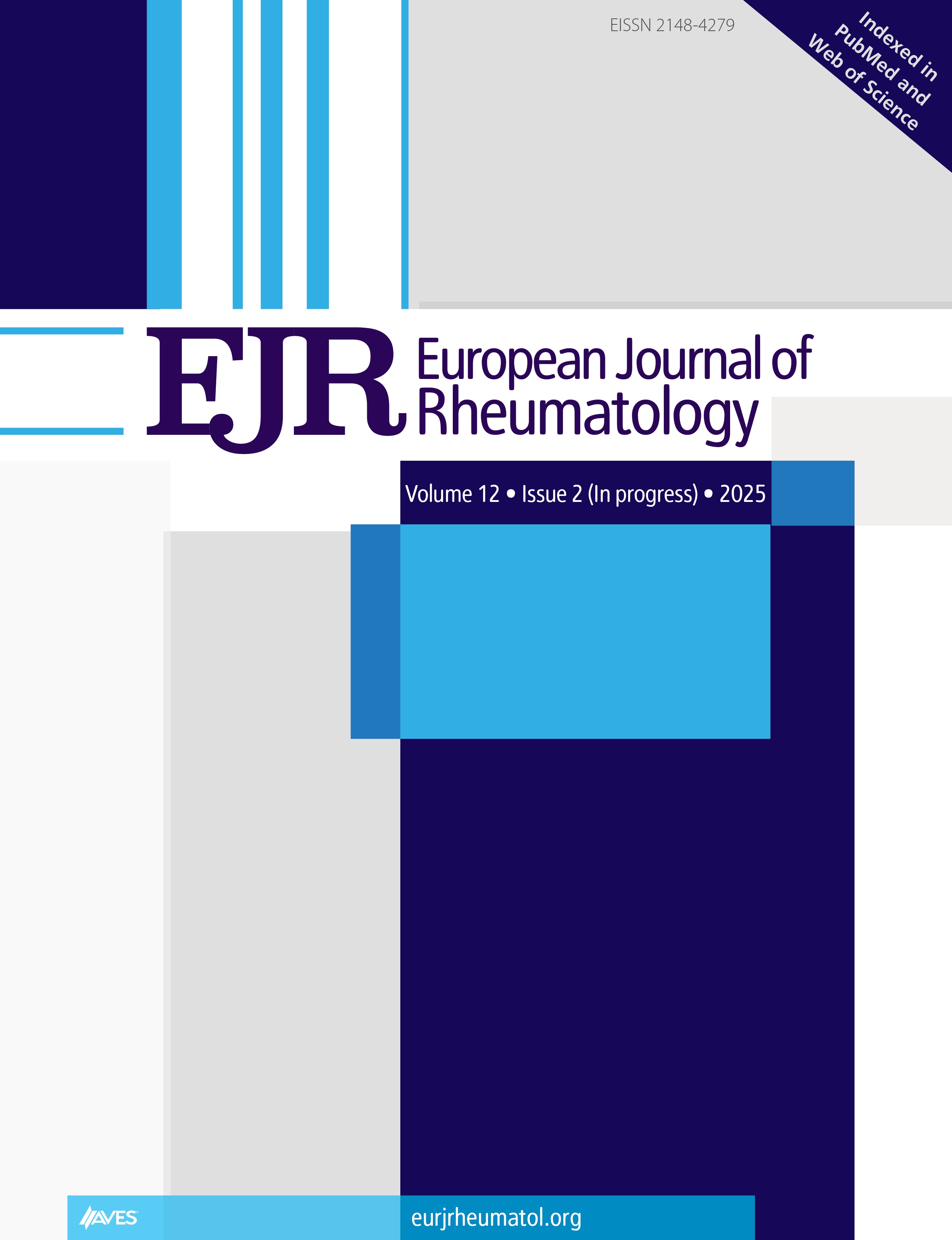Objective: Managing treatment and symptoms of chronic diseases without accepting the illness is challenging. This study aimed to determine the relationship between pain acceptance and the acceptance of illness in individuals with rheumatoid arthritis (RA).
Methods: In this descriptive study of 123 people diagnosed with rheumatoid arthritis (RA), data were collected through a questionnaire. The questionnaire included a Patient Information Form, Visual Analog Scale (VAS), Health Assessment Questionnaire (HAQ), Disease Activity Score 28 (DAS28), Chronic Pain Acceptance Questionnaire (CPAQ), and Acceptance of Illness Scale (AIS).
Results: The mean chronic pain acceptance score of individuals with RA was 55.32 ± 12.96, and the mean acceptance of illness score was 25.00 ± 8.02. A statistically significant relationship existed between levels of pain measured by VAS and CPAQ (r=−0.184, P=.042). A statistically significant correlation existed between AIS and CPAQ total score (r=0.284, P=.001).
Conclusion: As the levels of pain acceptance increased in RA patients, the levels of pain decreased, and the levels of acceptance of the illness increased. Patients must first acknowledge and accept their illness to follow their treatment plan effectively. Considering that the pain acceptance of individuals diagnosed with RA affects the level of acceptance of illness, it is essential to evaluate patients’ pain and disease acceptance processes and support patients to increase treatment success.
Cite this article as: Akça Doğan D, Pehlivan S, Pehlivan Y. The relationship between pain acceptance and acceptance of illness in individuals with rheumatoid arthritis. Eur J Rheumatol. 2024;11(4):399-404.



.png)